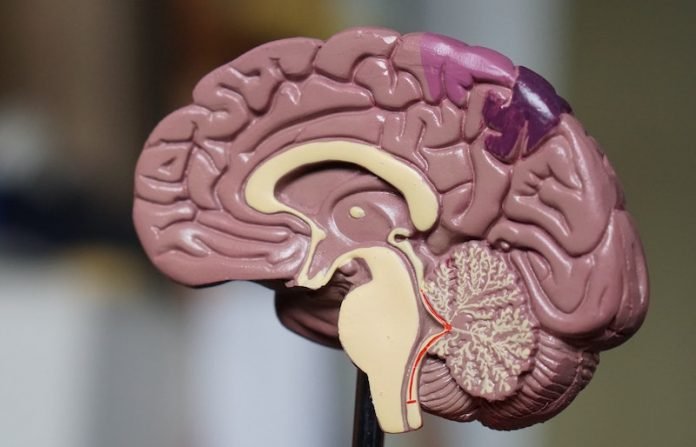
In a new study from the University of Arizona, researchers discovered a potential treatment to reduce the risk of post-stroke dementia, which may be influenced by the immune response to dead brain tissue left in the wake of a stroke.
They examined cyclodextrin, which is FDA-approved for use as an ingredient in other drugs.
Cyclodextrin’s chemical properties and shape allow it to “scoop up” and safely store cholesterol without provoking a heightened inflammatory response.
The team found that treatment with cyclodextrin resulted in less cholesterol accumulation and inflammation in the brain.
Cyclodextrin also reduced neurodegeneration, protected memory function and reduced impulsivity, a personality change that can occur after a stroke.
Ischemic strokes occur when blood vessels to the brain are blocked or restricted, cutting off the brain’s supply of oxygen and nutrients, and killing brain cells.
The resulting patch of dead tissue prompts an inflammatory response, a normal process in which immune cells respond to the site of an injury to remove the remnants of dead or damaged cells and begin the healing process. When inflammation is prolonged, however, it can damage healthy tissue.
In the case of stroke, inflammation can last for months because brain cells contain a relatively high level of cholesterol, which is difficult for immune cells to remove.
As immune cells struggle to processes the accumulated cholesterol released by dead brain cells, they attract additional immune cells, elevating and prolonging the immune response, causing collateral damage to healthy brain cells.
The team’s previous research showed that, after a stroke, the inflammatory response to dead brain tissue spreads into healthy areas of the brain, killing more brain cells.
The researchers hope future research will lead to the development of drugs that can improve stroke recovery and reduce the risk of post-stroke dementia.
If you care about dementia risk, please read studies about antibiotic drug that may effectively treat common dementia, and new stem cell therapy to treat dementia.
For more information about brain health, please see recent studies about eye problems linked to a higher risk of dementia, and results showing that some dementia cases could be prevented by changing these 12 things.
The study is published in the Journal of Neuroscience and was conducted by Kristian Doyle et al.
Copyright © 2022 Knowridge Science Report. All rights reserved.




